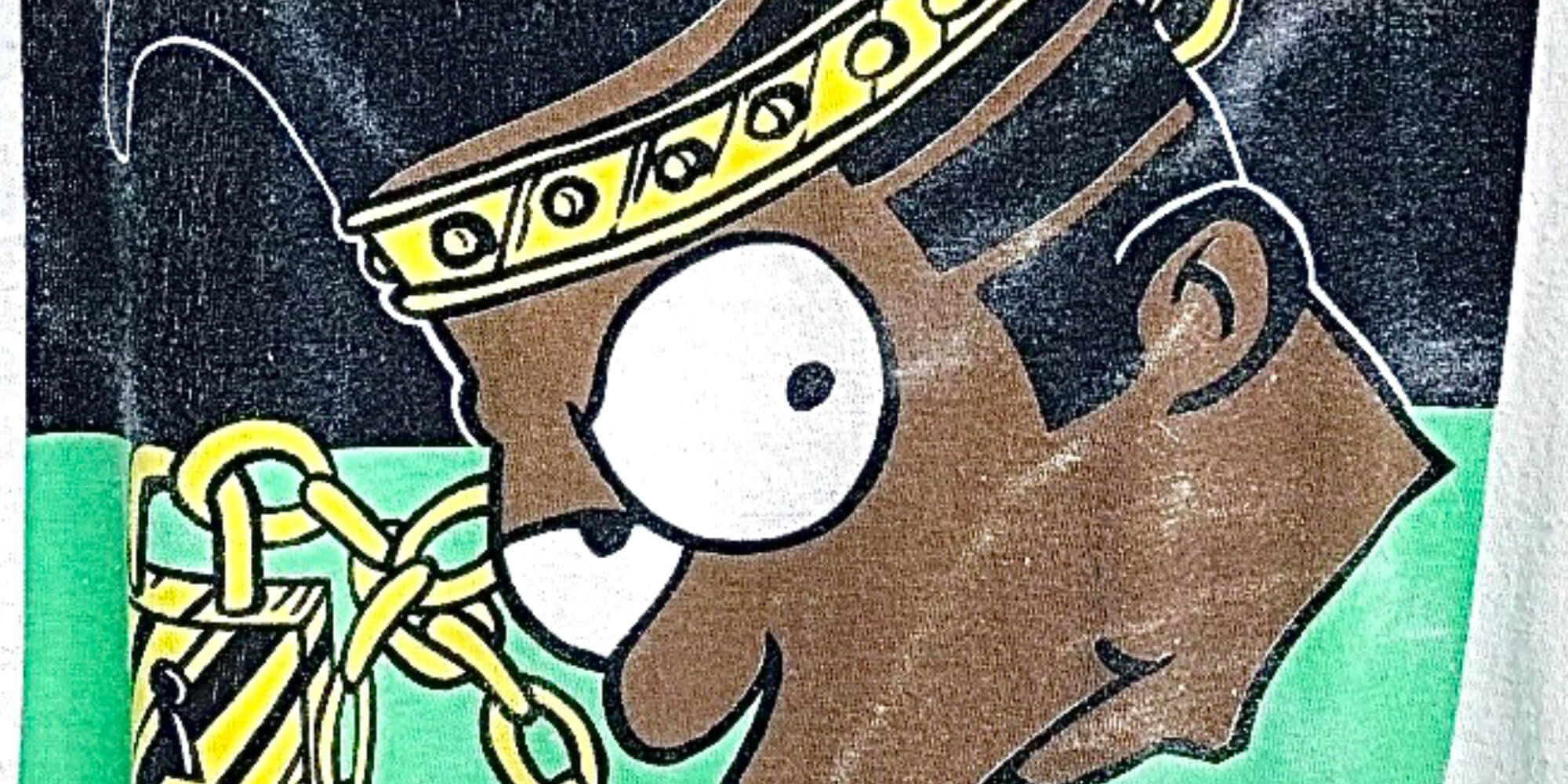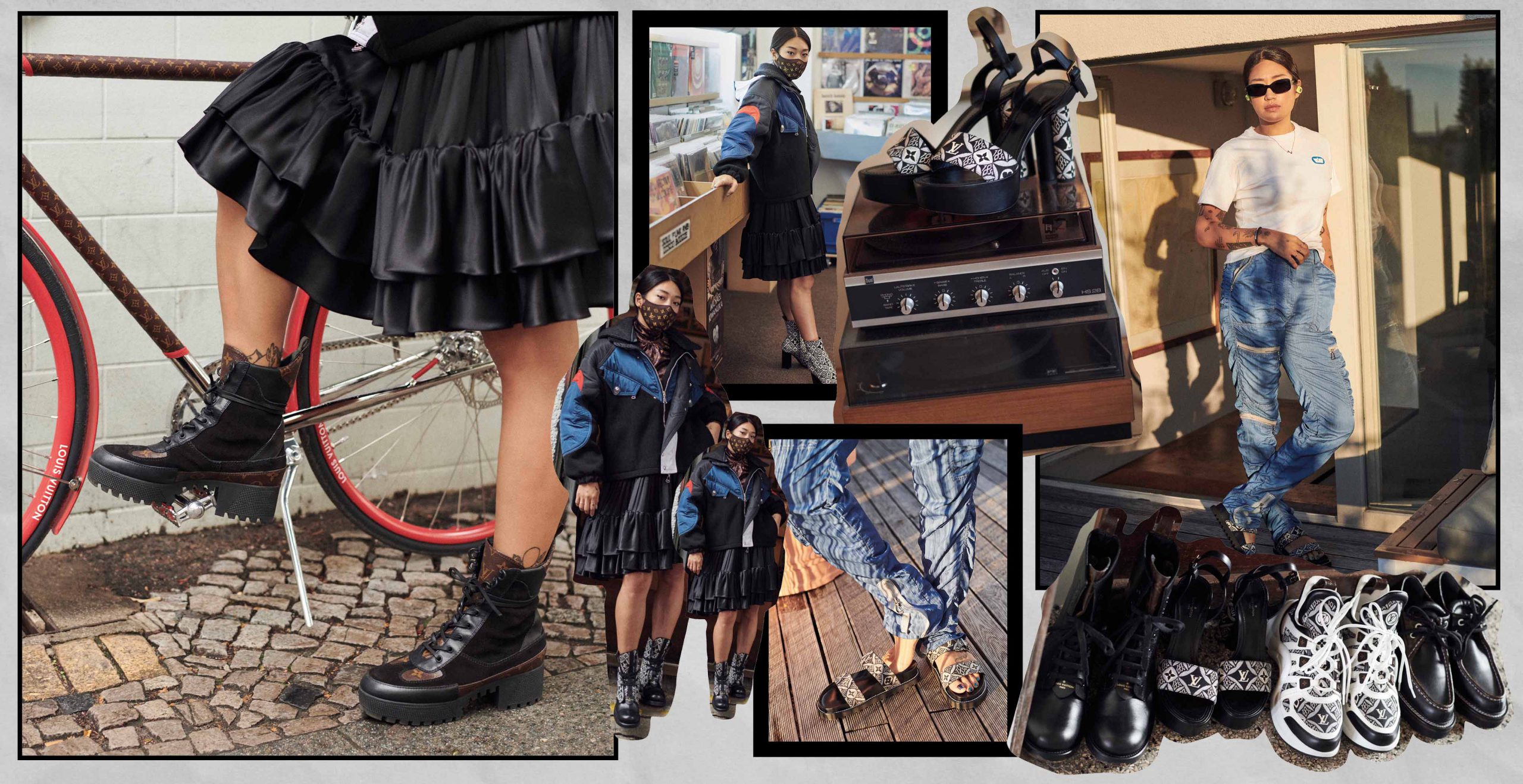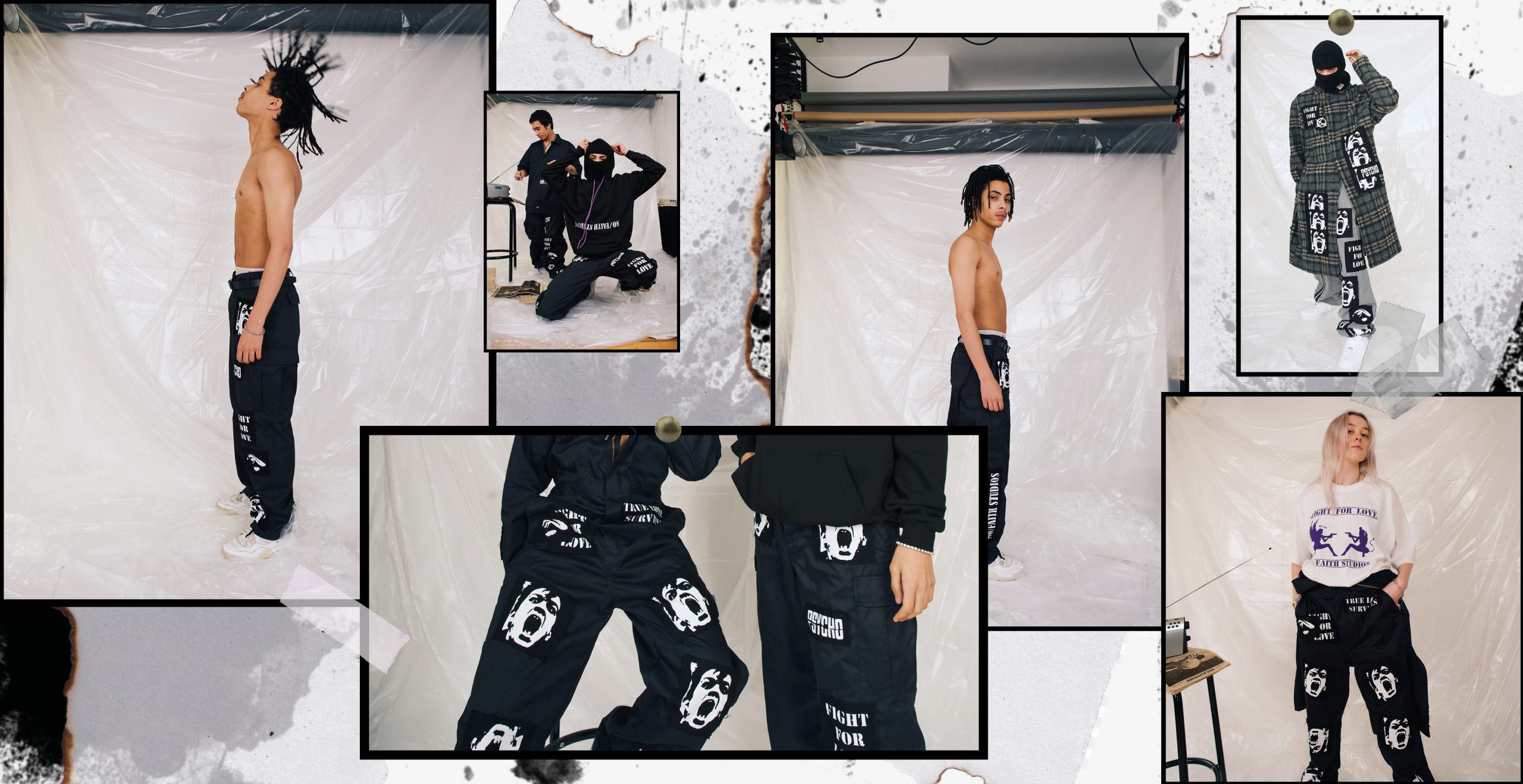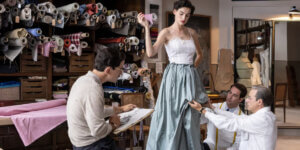Bootleg counterfeit shirts featuring the beloved 90s TV family, The Simpsons, hold a special place in American history. They represent more than just poorly printed graphics on inexpensive t-shirts; they embody a piece of our pop culture heritage, much like the show itself.
The Simpsons made their prime time TV debut in 1989, following comic writer Matt Groening’s earlier success with underground comics and animated shorts. Today, with 34 seasons under their belt, the show remains on air, permeating every aspect of our lives. It even spawned a chart-topping single by Bart, courtesy of Michael Jackson.
Since entertainment giant Disney’s acquisition of Fox Entertainment in 2017, The Simpsons’ home network, there’s been no shortage of attempts to capitalize on the yellow cartoon family. Beyond the never-ending show, various fashion collaborations have emerged, including partnerships with Adidas (featuring Duff Man-inspired Forum Low shoes, Homer-themed Stan Smiths, and a less popular Flanders-centered design), Levi’s, Vans, Kith, and even an animated short for Balenciaga’s 2021 collection.
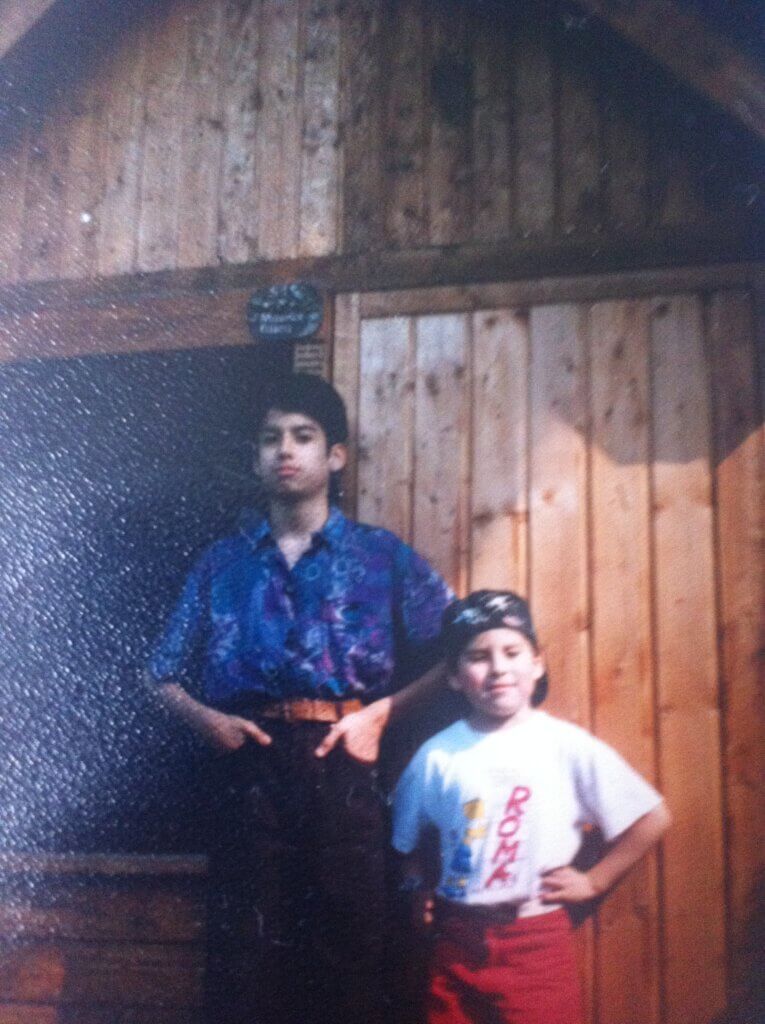
However, The Simpsons’ most fascinating fashion legacy lies in the phenomenon of “Bootleg Bart.” As the show gained popularity in the early 90s, bootlegged merchandise flooded street vendors and tourist destinations. I vividly remember receiving my first “Bootleg Bart” shirt in 1993 as a gift from my older brother—a white tee featuring Bart Simpson spray painting the word “Roma” on a wall.
While these counterfeit The Simpsons shirts may seem mundane in the vast sea of bootleg merchandise, they possess an undeniable appeal. For instance, the “Bootleg Bart” tourist shirts from Miami at least featured guns for a touch of excitement.
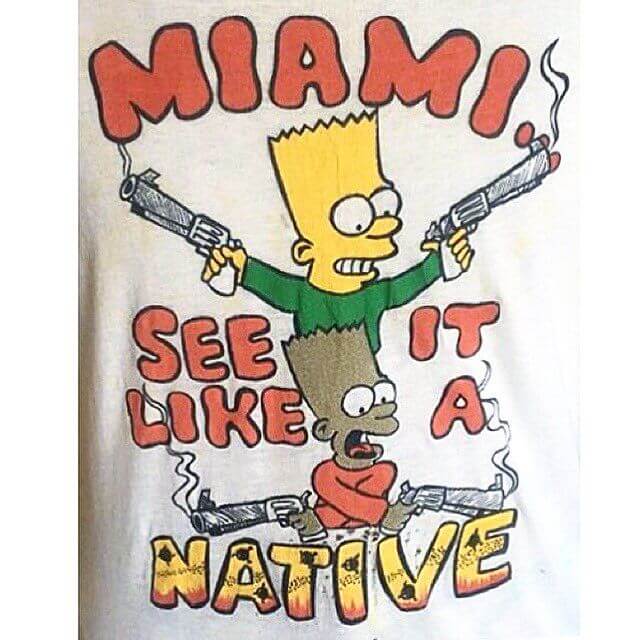
Today, anyone can explore the world of bootleg The Simpsons merch through web browsing and various auction or resell sites. The primary source, however, remains the Twitter account @bootlegbart. Although other social media accounts associated with @bootlegbart have seemingly been taken down, the website declares:
“Our site celebrates the creativity of early 90s bootlegs and aims to educate those interested in pop culture history. We do not condone counterfeiting and believe it stifles imagination when people imitate without using their own creative prowess.”
To craft this article, I delved into @bootlegbart’s vast library of counterfeit The Simpsons shirts. Twitter users from around the globe submit their findings to this account, eagerly awaiting a repost.
Among the myriad of obscure pop culture references available, such as shirts featuring Bart revealing who killed Twin Peaks’ Laura Palmer, a mash-up of Bart Simpson and comic detective Dick Tracy known as “Bart Tracy,” and Bart’s encounters with The Teenage Mutant Ninja Turtles, the 90s rap group Digital Underground and their hit song “The Humpty Dance” also made appearances. Additionally, demand soared for mash-ups featuring 90s icons Michael Jordan and M.C. Hammer.
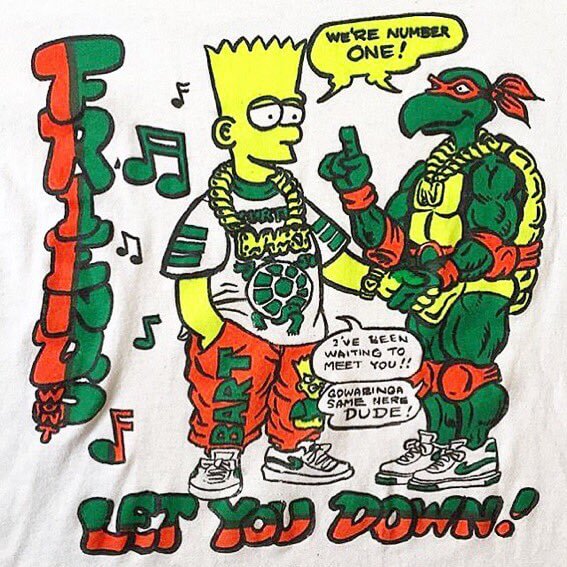
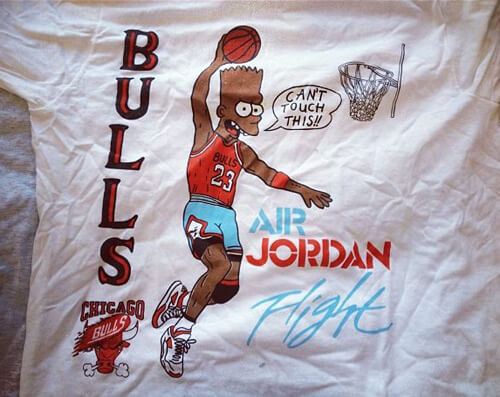
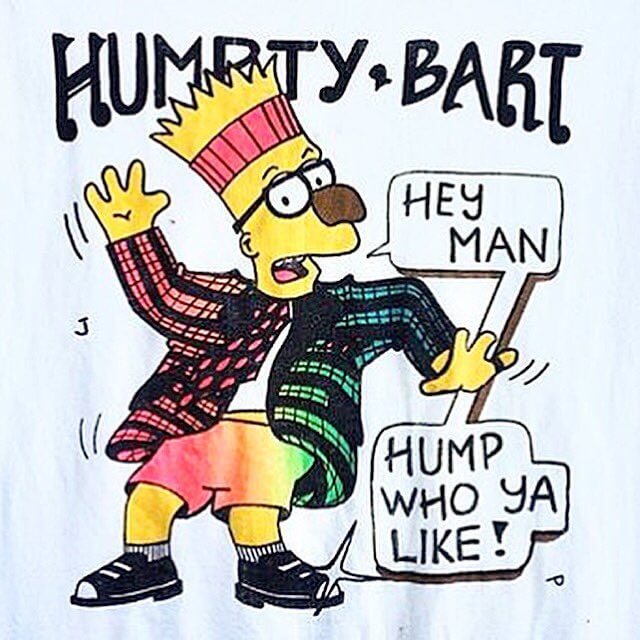
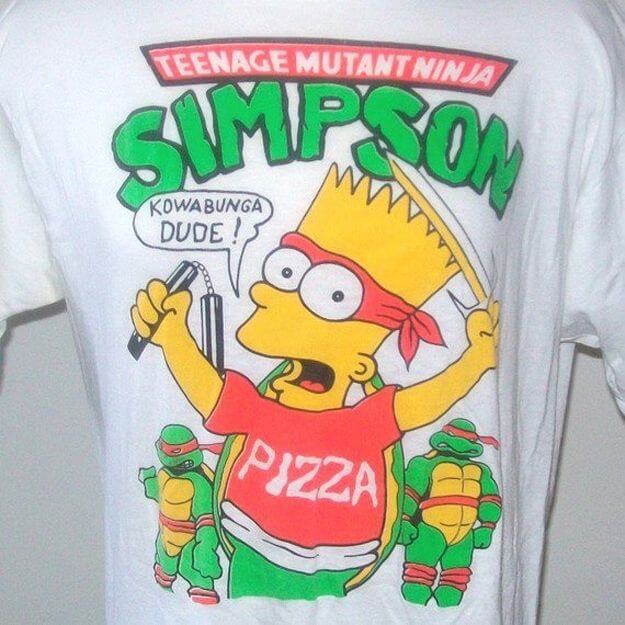
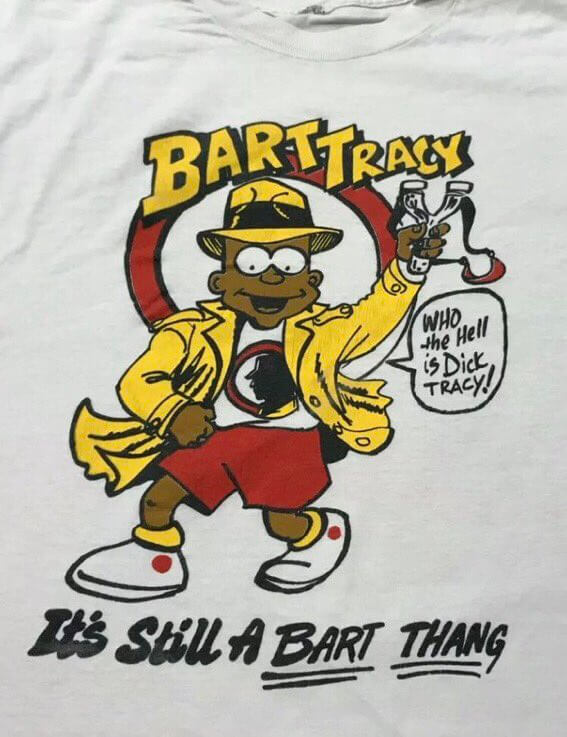
Yet, “Bootleg Bart” shirts extended beyond the entertainment industry, delving into the political topics of the early 90s, including the Rodney King Riots, Black History, and the growing Black pride movement. Vintage shirt enthusiasts refer to this sub-genre as “Black Bart.”
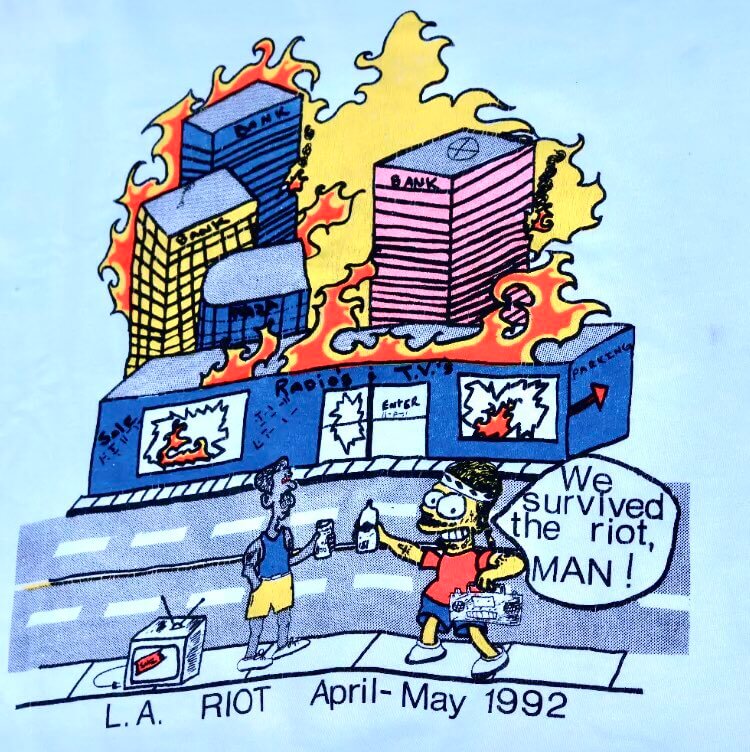
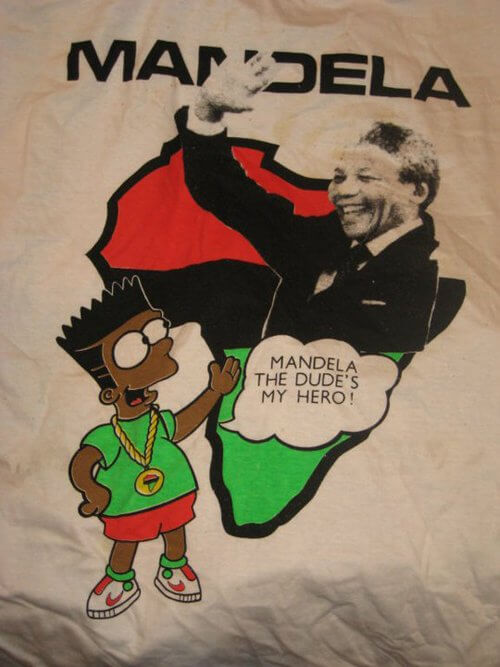
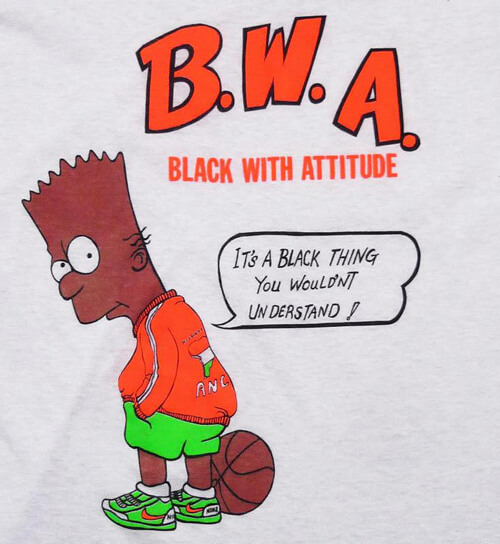
And let’s be honest, have you ever seen a more creative twist on Homer strangling Bart than a shirt celebrating the Haitian Revolution of 1791? This design reverses the roles, depicting a “Black Bart” strangling “colonizer Homer.” It’s a thought-provoking portrayal.
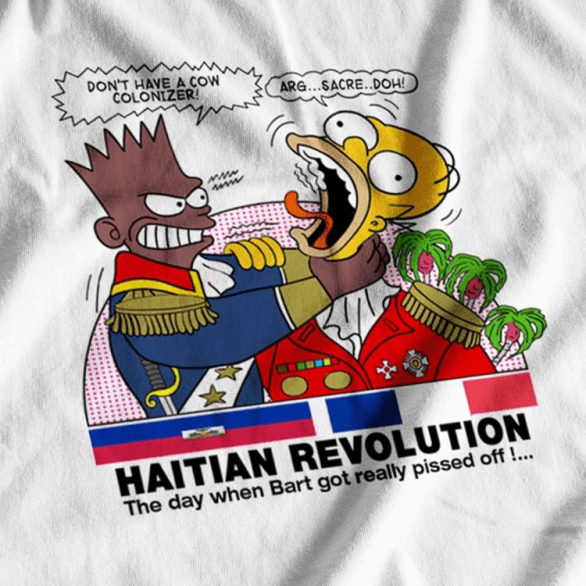
The Gulf War of 1990-1991 also became a profitable topic for shirt sales, with shirts both supporting and opposing the war in Iraq.
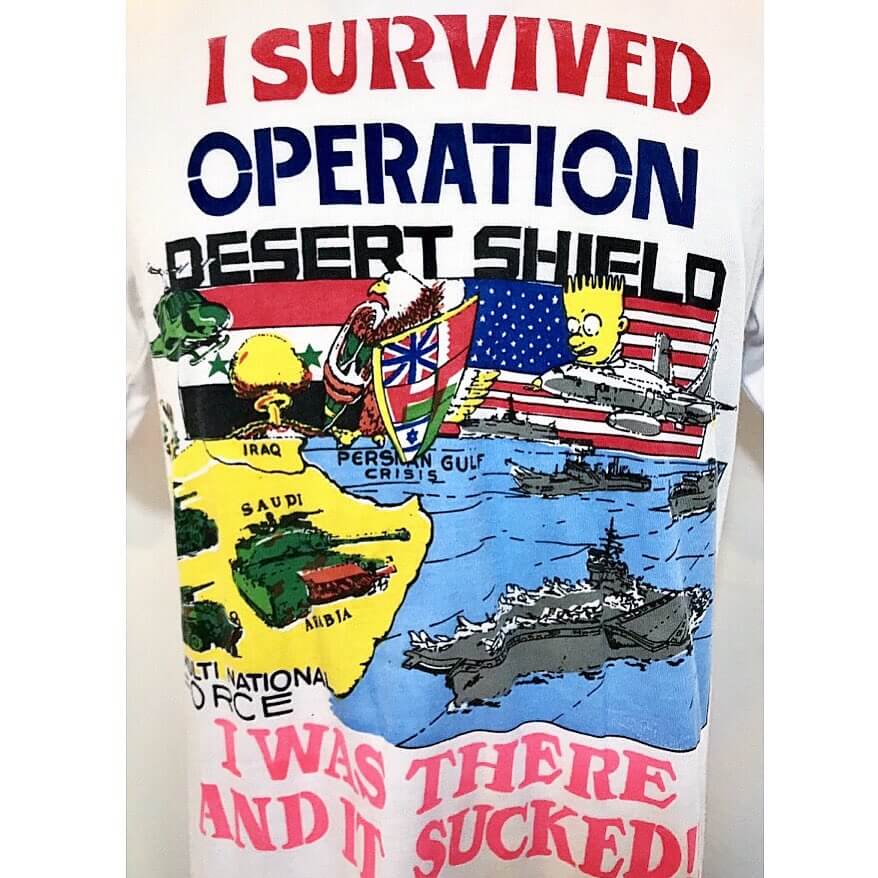
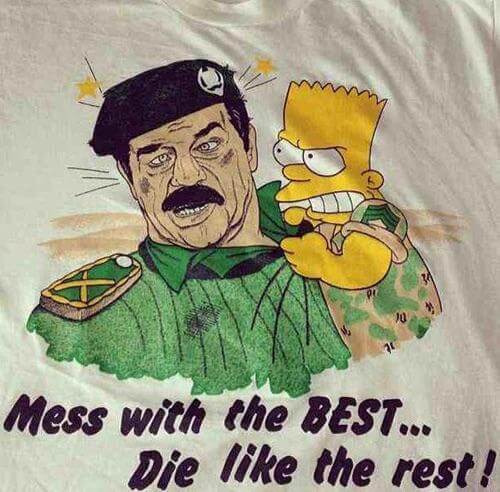
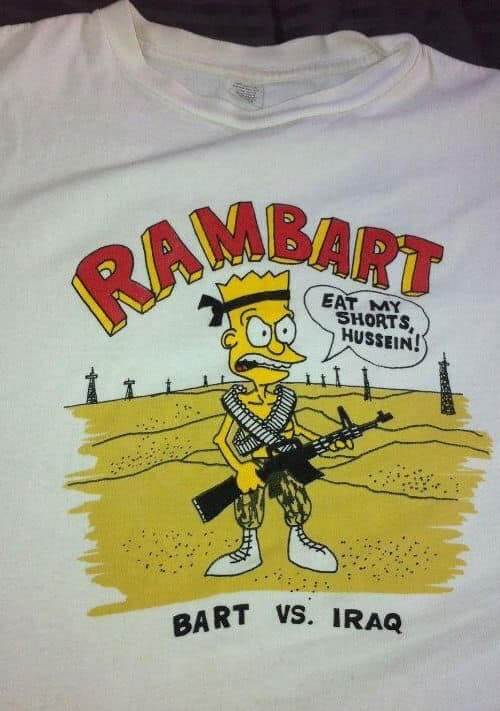
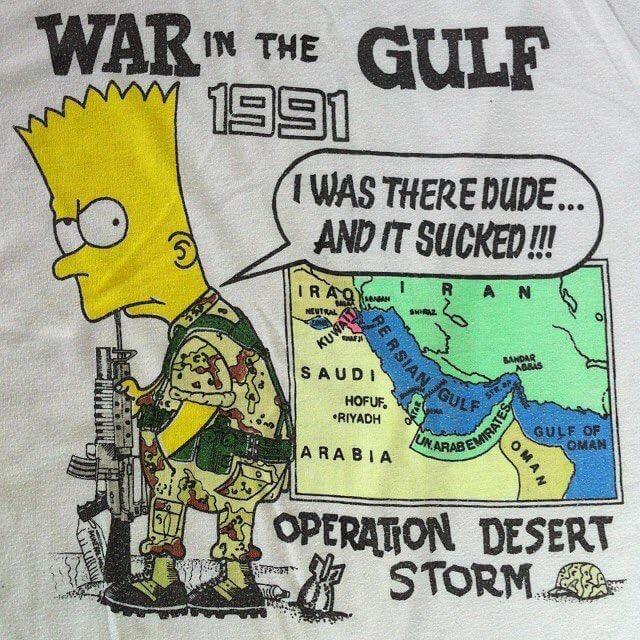
In season 2 of the show, an episode titled “Three Men and a Comic Book” introduced Bart Simpson’s alter ego, Bartman. This character, in t-shirt form, also took on the important role of raising AIDS awareness during a time when HIV/AIDS-related deaths reached a tragic peak in the late 90s.
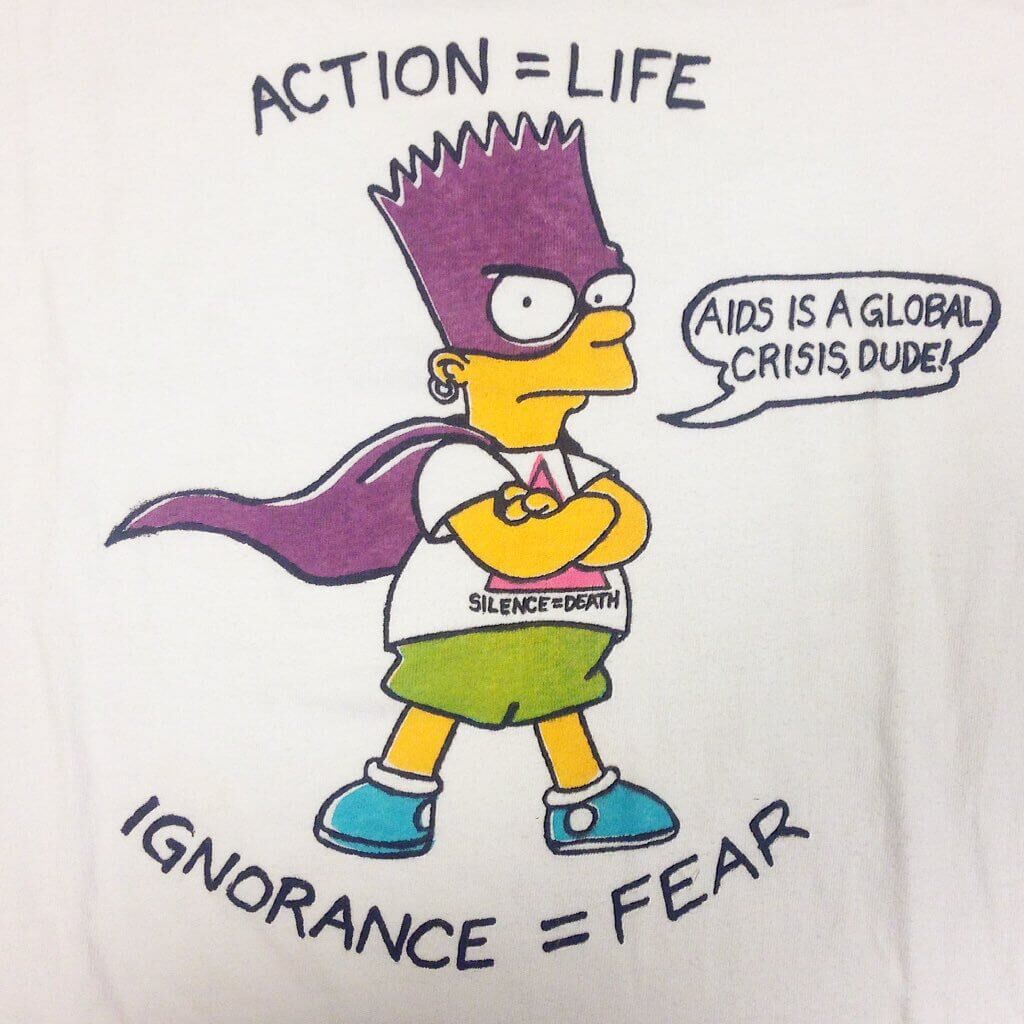
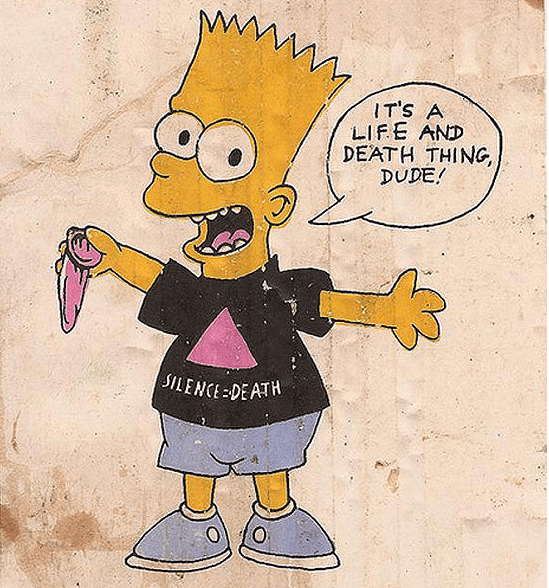
Browsing for “Bootleg Bart” shirts takes us on a historical journey to a bygone era, over 30 years ago. Since these shirts were never officially licensed, they embody a multitude of topics and ideas that make them all the more intriguing. It’s not just Bart; even his bootleg version has become a part of pop culture. As www.bootlegbart.com aptly describes it: “A 90s memory—a global phenomenon.”
In terms of substance and relevance, this phenomenon surpasses every commercial collaboration between The Simpsons and fashion brands currently flooding the market.








